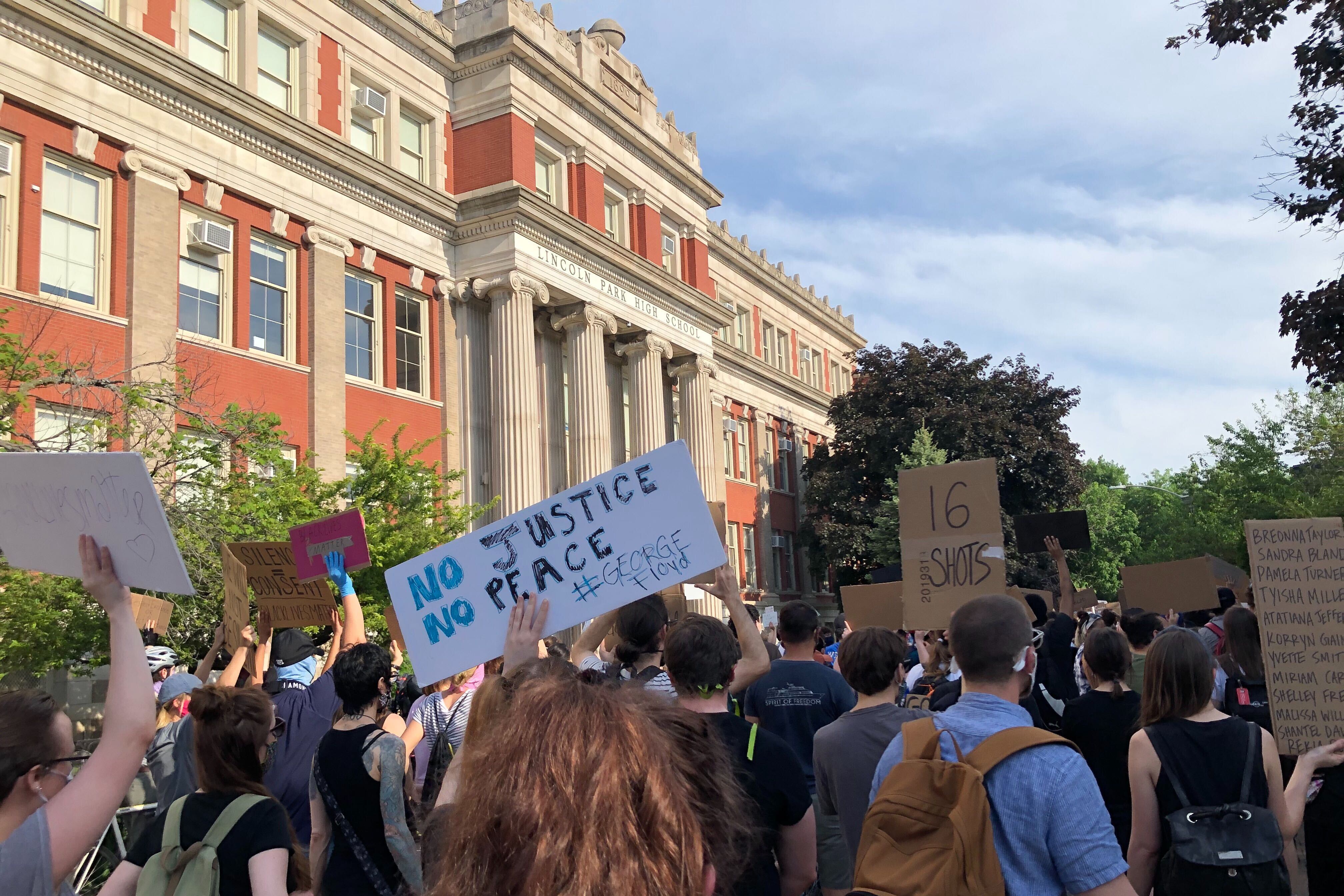Chicago’s school board will consider Wednesday whether to terminate its contract with the Chicago Police Department — even as the schools chief defended the school police program at a press conference Monday.
If the motion passes, it would make Chicago the largest city in the country to remove school police from its public schools.
School boards across the country have terminated school police programs in recent weeks, including Minneapolis, Denver, and Milwaukee. In Los Angeles, a task force appointed by the superintendent said it will review the role and budget for school police.
The vote also could set up a stand-off between Mayor Lori Lightfoot, Chief Executive Officer Janice Jackson, and the appointed board of education. Both the mayor and schools chief have opposed the wholesale removal of police from schools.
During Monday’s press conference, Jackson said the decision to keep or remove school police should remain with individual school councils, which were given the authority last fall as part of sweeping changes mandated by a federal consent decree.
“We think we have a strong process in place that prioritizes the democratic process,” Jackson said. “At the end of the day the decision is a critical one, and that decision should rest at the school level.”
The board’s motion, detailed in its agenda for the Wednesday school board meeting, would terminate the $33 million police contract signed almost a year ago and block any options to renew. A second motion instructs district leadership to consult with the community to develop new safety measures, using some or all of the money now earmarked for school police.
Unlike many other big districts, Chicago’s school board is appointed by the mayor. But current board members, who began their term last summer, include a vocal community activist and an education professor who specializes, in part, in the history of student activism in Chicago. When the board approved the school police contract last summer only one member voted against, while several others were critical.
As the process stands now, school councils with police officers would be instructed to vote again to keep them, said Jackson. This time they would be offered an informational packet to help them make the decision.
Critics of giving school councils the ability to remove school police say many don’t have enough members to hold a vote. Schools that remove police officers also won’t get the benefit of the cost savings. Jackson said that because the positions are funded centrally, money won’t return to schools who reject officers.
She also said the district would examine the background of police officers who serve in schools, and “make sure records hold up under scrutiny.” A Chalkbeat analysis of police officers serving in Chicago schools during the 2019-2020 school year found that 96% of them had allegations against them, which ranged from paperwork errors to use of force; half had those allegations upheld after an investigation.
Several principals, who are in favor of keeping police officers in their schools, spoke at the press conference Monday. “I believe removal of SROs from Amundsen High School could result in a significant degradation of my ability to keep my students safe,” said Principal Anna Pavichevich, whose school is in the Ravenswood neighborhood.
Activists have said they will keep up the pressure to remove police from Chicago’s public schools, focusing on the Chicago Board of Education and the city council.
Meyiya Coleman, a youth organizer with the youth group VOYCE, said earlier this month that the decision in Minneapolis created the perfect moment for organizers to push for their demands. She hopes the school district will end its police contract. “Now is the time,” Coleman said.





